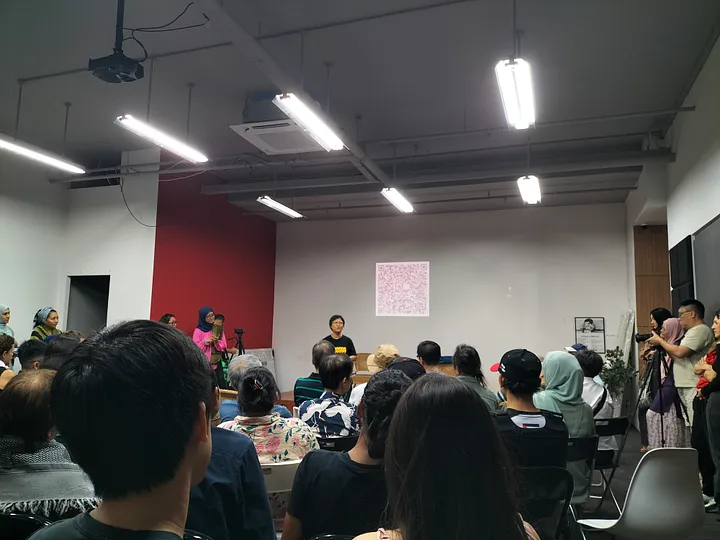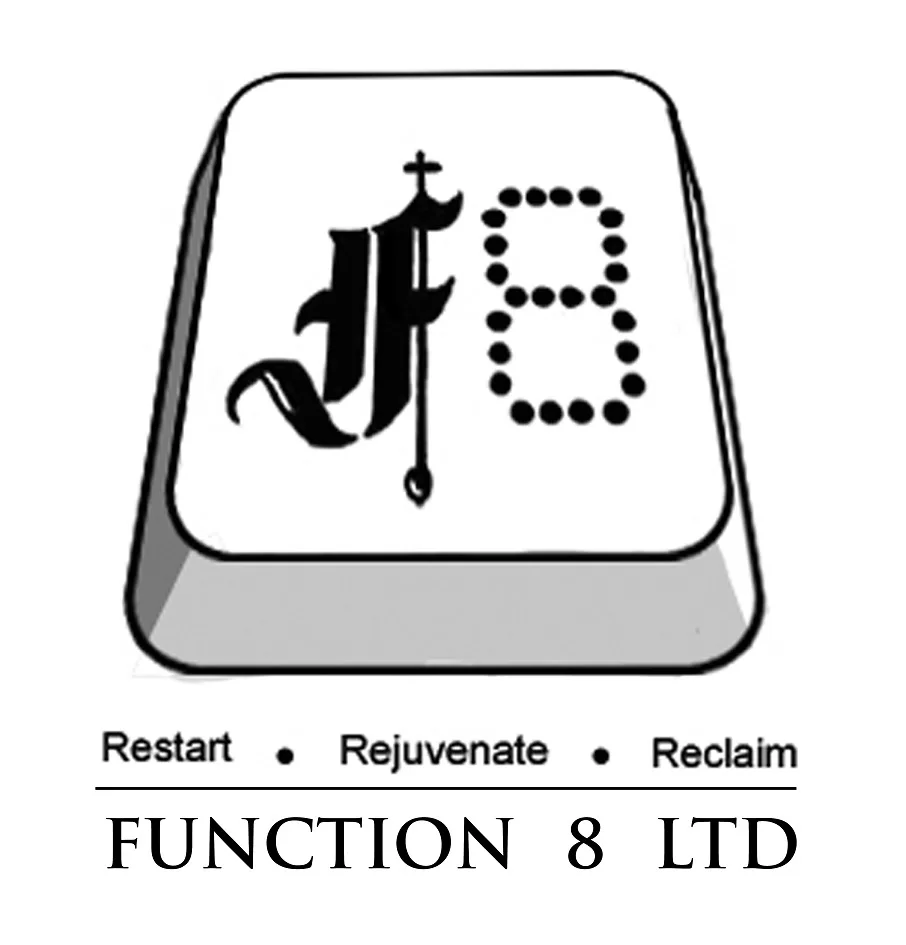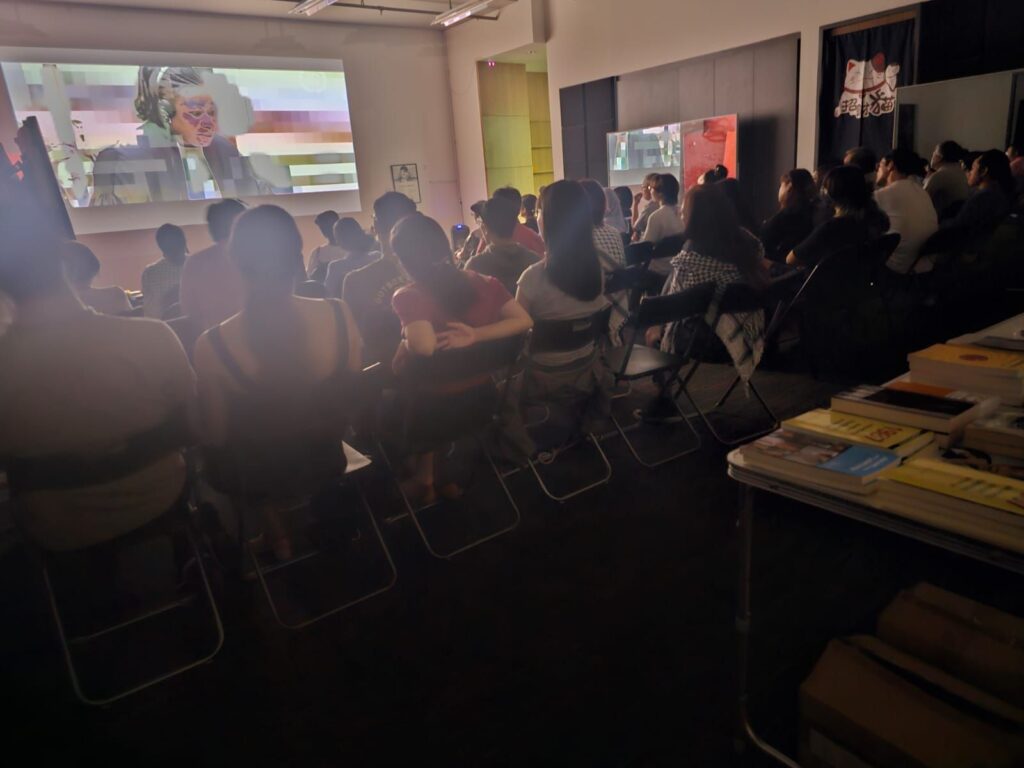by Cuifen Pui (first published in author’s blog on Medium)
A reflection after watching a thought-provoking documentary co-created by Palestinians and Israelis.
Thanks to Function 8 — a collective that facilitates the sharing of social, political and economic experiences, I had the opportunity to watch ‘No Other Land’, a documentary produced by a collective of Palestinians and Israelis. It was part of a FreedomFilmFest (FFF) Fringe Screening Series.

The film was co-created by Palestinian filmmakers Basel Adra and Hamdan Ballal, and Israeli filmmakers Yuval Abraham and Rachel Szor. Anchored by the personal story of Basel and Yuval, it traces their friendship in deeply challenging circumstances. We journey with them as Yuval hung out with Basel’s community, joined them during forced demolitions, and shared vulnerable conversations in low moments.
The Film
The 95-minute documentary was a masterclass in storytelling. It honestly captures the everyday lives of people in Masafer Yatta, a group of Palestinian villages in the West Bank. The families there live under constant stress of eviction from their homes and ancestral land.
They had appealed against the military’s plan to seize the land for training purposes. After two decades, the court ruled in favour of the military. The people did not leave — where could they go?
Their families lived on the land since the 19th century, yet this was not officially recognised. It was heartrending to watch Israeli forces walk into homes, tell families to evacuate, and then proceed to demolish their homes. Cooking pots, clothes, shoes, toys, and other belongings were taken away or crushed under the rubble. Families were not given time to pack.
Even the school that was hand-built by the community was not spared. Playgrounds were fenced off. The electricity generator was taken away. The forces would claim the families had no permits. These families were not allowed to apply for permits in the first place.
How could they live a dignified life when shelter, water, electricity, education, and freedom of movement were not available to them?
The families asked the military forces if they felt shame. There was little that they could do but to see their home being destroyed. After each demolition, they would salvage what they could, move to a nearby cave, and rebuild from scratch.
It was the quiet, familiar moments that tugged most at my heart. Children asking for more time to play. Families at the playground. A mum in tears, feeling helpless. A mother, after relocating to a cave, kissing her child and reminding her she was loved. And that tomorrow would be a new day.
Even when life appeared ‘normal’, forced eviction loomed.
Their resilience is extraordinary. Despite everything, they chose to stay — and this is despite repeated trauma and grief of seeing their homes being destroyed, seeing their children cry, and even witnessing their family members being left seriously injured. Basel’s family eventually decide to relocate, but they only did this after enduring unimaginable hardship.
Friendship Across Divide
Given the challenging history of Israeli and Palestinians, it was striking to witness the friendship between Basel and Yuval, and how easily Yuval was welcomed by Basel’s community.
At times, a community member would question if Yuval should still be welcomed. While Yuval had refused to serve the Israeli forces, how would he feel if a friend or family member was part of the forces that brought such suffering?
Their lives were shaped by unequal realities. Yuval could drive a car that Palestinians were not allowed to drive. He could leave West Bank and return home. Israeli forces went to his home but they didn’t demolish it.
Raw, Cinematic, Deeply Moving
The filming is both raw and cinematic. Scenes are beautifully composed — even in dimly lit streets or during moments of chaos. Large cameras would have to be deployed and I wondered how the filmmakers managed to do this. I want to give the film a 10/10 rating for bringing such an essential narrative with the world.
Reading the news, Palestine is one of the places that feels far away. Through this film, I felt like I’d been invited to a Palestinian’s home. A home with people I could relate to, even though our lives are shaped by different realities. I felt a deeper sense of empathy and connection.
Patience in the Midst of Constant Strain
In the film, Basel told Yuval that while their online articles did not get many views, they must be patient. “The occupation has lasted for decades and you want it to end in ten days,” he pointed out.
That moment stayed with me.
For those of us who long for a world where war is a thing of the past and everyone can thrive, it’s natural to wish for swift, peaceful solutions. What might be a realistic hope when the struggle has lasted for generations?
Basel, who is from a family of activists, admitted that he was tired. Who wouldn’t? Homes were repeatedly destroyed. Rebuilding supplies were taken away. Water supply was cut. Wells were sealed with concrete. A community member was seriously injured.
The weight of it all.
When Change Do Happen
A brief but revealing moment in the film highlighted a seven-minute visit by Tony Blair, a former UK prime minister. Through short, his presence had a positive impact: forced demolition plans of the houses he visited were cancelled.
This speaks volumes about the imbalance of power and who gets heard.
What Do We Speak Up About?
There is so much going on in the world today that I often wonder: What I should speak up about? When I do, do I know enough?
‘No Other Land’ communicated what headlines and news articles could not — the humans who can barely survive because the terrain they live in is unjust. It showed what happens when people’s rights to shelter, water, education, safety, and dignity are ignored. It showed that what is legal is not always just.






